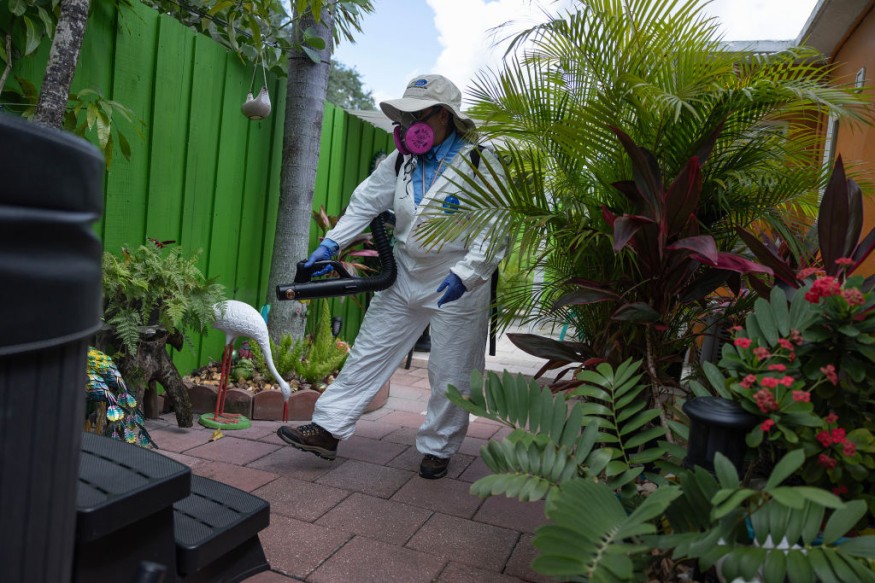
In Florida and Texas, there have been a number of reported cases of malaria. Although there is no need to panic, it might be a rising issue, according to experts.
Mosquito-Transmitting Malaria
Residents' worries about recent occurrences of malaria in Florida and Texas have spurred state and federal authorities to issue public alerts.
However, for a number of reasons, experts and public health officials advise restraint.
First off, there are very few cases, which reduces the total risk. Second, there are low-tech, straightforward precautions that people can take for their own safety.
Last but not least, there is virtually no possibility that a single mosquito would spread malaria.
Nevertheless, researchers agree that climate change is changing the environment and causing mosquito-borne diseases like West Nile virus and dengue fever to expand northward in the United States.
These insects can now survive in areas that were previously unsuitable for them due to rising temperatures and lengthened mosquito seasons.
The recent emergence of malaria cases could act as a warning sign for potential disease outbreaks in the future.
Philip Stoddard, a Florida International University professor of biological sciences, emphasizes the potential for the spread of novel, unidentified mosquito-borne viruses from West Africa.
Additionally, Cameron County, Texas, has reported one more instance of local transmission.
Travel-Related Malaria
Around 1,800 cases of malaria were associated with travel in the United States in 2018, which means that the cases were discovered in people who had been abroad, and seven people passed away as a result of the condition.
Although the CDC reported that all five of the malaria patients in Florida and Texas have gotten treatment and are making progress, the recent increase in cases is exceptional given that all of the patients contracted the parasite from Anopheles mosquitoes inside the country.
According to Derrick Mathias, a Florida Medical Entomology Laboratory assistant professor at the University of Florida, malaria is almost always transmitted by mosquito vectors, despite the fact that it can technically be spread by blood transfusion, organ transplantation, contaminated needles, or syringes.
There are 14 species of Anopheles mosquitoes in Florida, according to Florida Health.
All of which have the capacity to transmit malaria, and Mathias claimed that the recent emergence of cases is not particularly surprising.
However, according to Mathias, there must be three essential components for transmission to occur: the host, the capable vector, and the parasite.
Malaria via local transmission, which claimed the lives of over 2,700 people in the United States a hundred years ago in 1923, has since been effectively eliminated in 1951.
Once the parasite is eliminated, the other two can just live, and the mosquito becomes a pest and does not transmit disease.
Climate Change and a Growing Problem
An important recurrence of malaria is not always assured by a recent cluster of cases.
Mathias emphasized that a number of random occurrences are necessary for malaria transmission; any one of these can be targeted to stop the disease's progress.
In Florida and Texas, Anopheles mosquitoes-which transmit malaria-don't specialize in biting people. They bite different animals, lowering the possibility of transmission.
Additionally, the parasite takes one to two weeks to incubate in the infected mosquito, during which time it may face a variety of dangers.
These random occurrences are somewhat more likely as a result of climate change. Warmer temperatures hasten the maturation process, possibly facilitating the spread of malaria.
Experts predicted that as global temperatures rise, more months of the year may experience mosquito-borne illnesses like malaria.
Early Detection
Americans don't need to worry about malaria right now. The illness might die down on its own because it doesn't pass from person to person like COVID-19 or the flu.
Since there is no animal reservoir for the parasite in Florida, malaria is unlikely to become endemic in the area. However, prevention of transmission should be the main priority. In order to stop the progression of severe diseases, early detection and treatment are essential.
Every occurrence is taken seriously by the Florida Department of Health, which also urges people to take precautions, including emptying standing water, donning protective gear, and applying insect repellent. Tower fans, air conditioners, and window screens can all help keep mosquitoes away.
There is no current requirement for malaria-prevention drugs or vaccinations.
In the evening, Floridians should exercise additional caution, especially those who live in low-income regions without air conditioning.
Over the Fourth of July weekend, it is especially important to stick to these suggestions, STAT News reported.
Related Article : Squirrel Pox Cases Transmitted by Mosquitoes Increase in Maine
© 2025 NatureWorldNews.com All rights reserved. Do not reproduce without permission.





